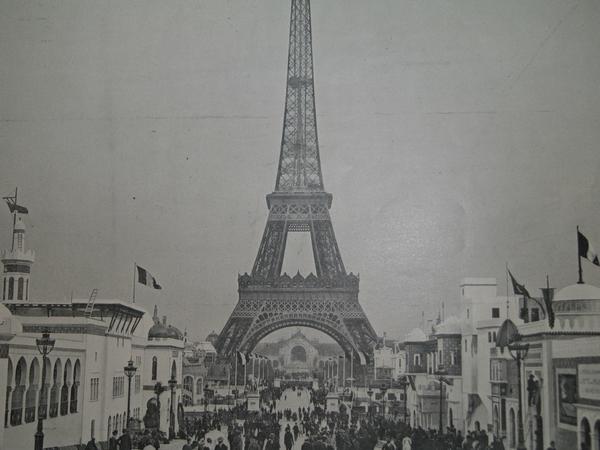Their children, confronted with the cheap, filling food of the city, grew fat and sick. Health officials were at a loss about what to do.
This book was not about Los Angeles. It was about Paris in 1901. Instead of palm oil and high fructose corn syrup, the culprit in Paris was pasteurized milk, so inexpensive that young mothers, adrift without the traditional wet nurses, tended to overfeed infants. That resulted in chronic diarrhea — and Europe's highest infant mortality rate. Some of the first medical observations of childhood obesity were recorded in Parisian free clinics. Tuberculosis, driven by pest-filled living quarters, was rampant.
The difference between Paris then and L.A. now was that French authorities actually viewed all this as a threat to national security. The Franco-Prussian war had decimated an entire future generation of soldiers. Fixing the birth rate was priority one — no kids, no cannon fodder. Using inforrmal 'schools for mothers' and other public education programs, they curtailed the overuse of milk. Using taxing authority, the Paris municipal government coaxed industry into providing rooms for breast-feeding mothers during breaks and lunchtime. Primitive but effective early detection clinics were set up to deal with tuberculosis.
L.A.'s challenges are both less dire and more complex. But Paris offers a model for thinking strategically about a metropolitan community's health. To some extent, of course, city policy can't substitute for accepting individual responsibility. As the French knew, children get fat because parents feed them too much bad food. Pierre Budin, a prominent obstetrician, shocked the 1903
Conference on Hygiene with his views, and liked to tell his medical students, "I always prefer to err by giving a little too little than by giving too much."
Preserving our health also requires smarter commercial regulation - like only issuing liquor licenses to neighborhood stores that purvey fresh fruits, vegetable and meats. Forget about wooing supermarkets, or give them incentives to invest in small, neighborhood venues.
Anyone familiar with the vast public health bureaucracy in Los Angeles knows that such governmental activism is bound to confront deeply felt opinions to the contrary. Yet I suspect that most Angelinos — new and old — have made a commitment to their city, and to all the experimentation that entails. The Parisians of 1900 did too.
